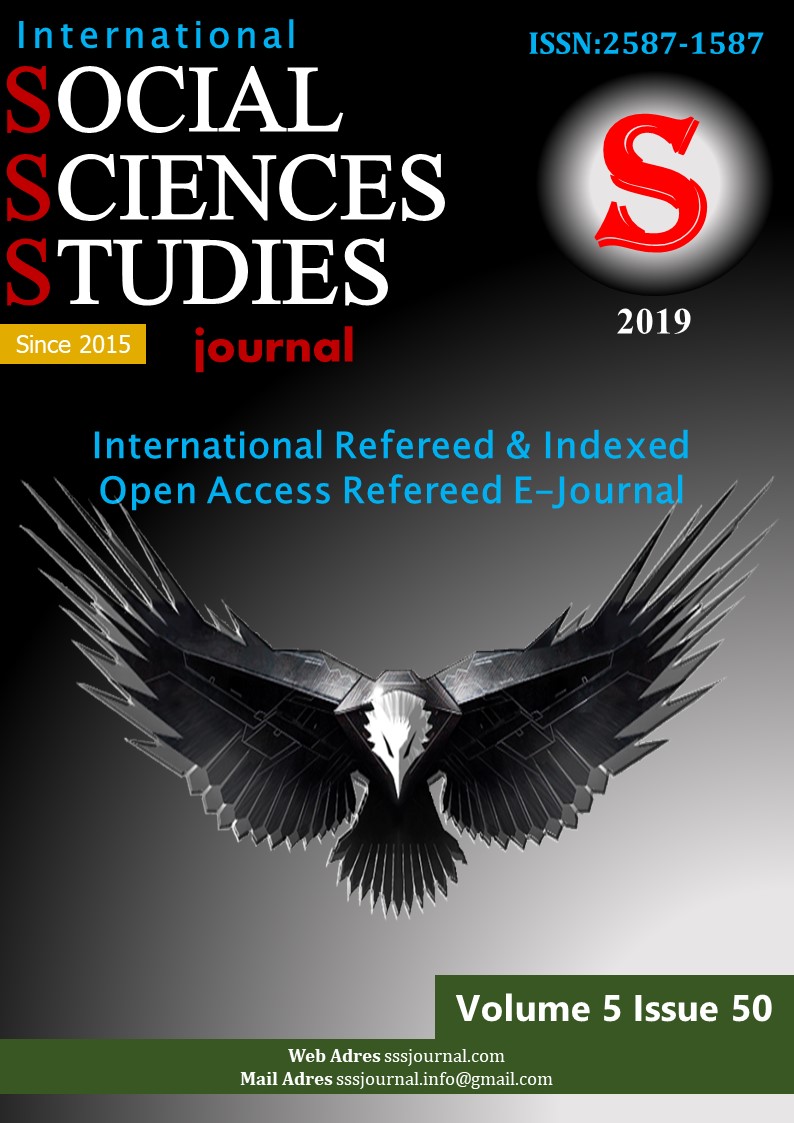Türkiye Ekonomisi Açısından Ulaştırma Sektöründe Havayolu Taşımacılığının Önemi ve Ekonometrik Analiz
Author :
Abstract
Ulaşım araçları, tarih boyunca insanların refah bir yaşam standardı sürdürebilmesi için kolaylıklar sağlamıştır. Sadece tekerlek dönsün yeter mantığı yerine; küreselleşme ve konfor kavramının ön plâna çıktığı dönemler hakim olmaya başlamıştır. Bireylerin bir yerden başka bir yere gitme arzusu, ulaşım sektörüne olan ilgiyi artırmıştır. Kalite, konfor, hız, zaman ve güvenilirlik gibi kavramlara verilen önem; havayolu ulaşım ağının tercih edilebilirliğini artıran faktörler olarak ortaya çıkmaktadır. Havayolu yolcu taşıma oranlarının ülke ekonomisine katkısı her geçen gün artmaktadır. Ülkenin tercih edilebilirliğini ve kolay ulaşımını artıran sektör, ekonomik büyüme oranlarını da etkileyerek refah ülke konumunda olmayı sağlamaktadır.
Bu çalışmanın amacı; havayolu sektörünün Türkiye ekonomisine getirilerini ve etki düzeyini anlatarak bu durumu sayısal verilerle ortaya çıkarmaktır. Çalışmanın sayısal veri kısmında ise; Türkiye’nin havayolu iç-dış toplam yolcu sayısı, ekonomik büyüme oranı, toplam seyahat geliri ve dışa açıklık oranı kullanılarak bu dört değişken arasındaki ilişkinin tespitinin yapılması amacıyla; ADF Birim Kök Testi, Johansen Eşbütünleşme Analiz Yöntemi ve Hata Düzeltme Modeline Dayalı Granger Nedensellik Analizi uygulanmıştır. Çalışmada ulaşılan bulgulara göre, değişkenlerden havayolu iç-dış toplam yolcu sayısı tek yönlü olarak büyüme oranını ve dışa açıklık oranını etkilediği, büyüme oranının çift yönlü olarak dışa açıklık oranını ve seyahat gelirini etkilediği, seyahat gelirinin ise tek yönlü olarak havayolu iç-dış toplam yolcu sayısını ve dışa açıklık oranını etkilediği sonucuna ulaşılmıştır.
Keywords
Abstract
Transportation means provided facilities to ensure that people maintain a prosperous standard of living throughout history. Instead of logic just enough to turn the wheel; globalization and comfort came to the forefront of the concept began to dominate. The desire of individuals to move from one place to another has increased the interest in the transportation sector. The importance given to concepts such as quality, comfort, speed, time and reliability; factors that increase the preferability of the airline transportation network. The contribution of airline passenger transport rates to the national economy is increasing day by day. Increasing the country's preferability and easy transportation, the sector also affects economic growth rates and ensures welfare country status.
The aim of this study; in this case by describing the return of the airline industry and the level of impact it is to expose Turkey's economy with quantitative data. In the numerical data part of the study; Turkey's airline passengers' inside-out number, growth rate, making the total travel revenue and the relationship between these four variables using the detected openness order; ADF Unit Root Test, Johansen Cointegration Analysis Method and Granger Causality Analysis Based on Error Correction Model were applied. According to the findings of the study, it is concluded that the total number of airline internal-to-external passengers in one way affects the growth rate and the degree of exteriance, the growth rate affects the bi-directionally the rate of exeview and travel income, while travel revenue affects the single-sided total number of airline internal-external passengers and the rate of exeview.
Keywords
- Bakırcı, M. (2012). Ulaşım Coğrafyası Açısından Türkiye'de Havayolu Ulaşımının Tarihsel Gelişimi ve Mevcut Yapısı. Marmara Coğrafya Dergisi, 0 (25), 340-377.
- Bal, H., Manga, M., & Gümüş Akar, P. (2017). Havacılık Sektörü ve Ekonomik Büyüme: ………Türkiye
- Çemrek, F. (2012). Türkiye'deki İllerin Gelir ve Refah Düzeyi Değişkenleri Arasındaki İlişkinin Kanonik Korelasyon Analizi İle İncelenmesi. Eskişehir Osmangazi Üniversitesi İİBF Dergisi, 7 (2), 197
- DHMİ. (2014). Havayolu Sektör Raporu, 22 Kasım 2017 tarihinde https://www.dhmi.gov.tr/Lists/DosyaYonetimiList/Attachments/2/Sekt%C3%B6r%20Raporu%202 014.pdf sayfasından erişilmiştir.
- EDAM. (2016). İstanbul Yeni Havalimanı Ekonomik Etki Analizi, 21 Kasım 2017 tarihinde Ekonomi ve Dış Politika Araştırma Merkezi: http://www.istanbulekonomi.com/Content/Media/dosyalar/IGA_Ekonomik_Etki_anal%C5%BEz%C5%BE.pdf sayfasından erişilmiştir.
- Engin, N. (2012). 12 Kasım 2017 tarihinde Dergipark Akademik: http://dergipark.gov.tr/iumamk/issue/760/8182 sayfasından erişilmiştir.
- Erdoğan, H.T. (2016). Ulaşım Hizmetlerinin Ekonomik Kalkınma Üzerine Etkisi. İstanbul ……….Gelişim
- Kara, M.A., & Ciğerlioğlu, O. (2018). Türkiye Ekonomisinde Ulaşım Altyapısının ………Ekonomik
- Kaynak, M. (2004). Uluslararası Taşımacılık ve Lojistik Bağlamında Avrasya Ulaştırma Koridorlarında Bölgesel Rekabet ve Türkiye. 4.Türkiye İktisat Kongresi, 3-34.
- Kiracı, K. (2018). Havayolu Taşımacılığı İle Ekonomik Büyüme Arasındaki Nedensellik ...... Analizi:
- Kundak, S., & Aktop, V.S. (2018). Türkiye Ekonomisinde Havayolu Taşımacılığının ……..Girdi-Çıktı
- Kutluay Tutar, F. (2019). Ekonomik Gelişmenin İtici Gücü Olarak Ulaştırma Sektörü ve ……..Turizme
- Kuyucak, F., & Şengür, Y. (2009). Değer Zinciri Analizi: Havayolu İşletmeleri İçin Genel Bir Çerçeve. KMU İİBF Dergisi, 2009 (1), 132-147.
- Maliye Bakanlığı. (2016). Yıllık Ekonomik Rapor, 5 Kasım 2017 tarihinde http://www.maliye.gov.tr
- Saatçioğlu, C. (2011). Ulaştırma Ekonomisi Teori ve Politika, Ankara, Gazi Kitabevi, 1- ……... 268.
- Sarılgan, A. E. (2011). Türkiye'de Bölgesel Havayolu Taşımacılığının Geliştirilmesi İçin Yapılması Gerekenler. Anadolu Üniversitesi Sosyal Bilimler Dergisi, 11 (1), 69-88.
- SHGM. (2015). Havayolu Taşımacılığı ve Ekonomik Düzenlemeler Teori ve Türkiye Uygulaması, 12 Kasım 2017 tarihinde http://web.shgm.gov.tr/documents/sivilhavacilik/files/pdf/kurumsal/yayinlar/SHGM_Havayolu_Ta simaciligi_Kitabi.pdf sayfasından erişilmiştir.
- SHGM. (2015). 2015 Yılı Faaliyet Raporu, 18 Ocak 2017 tarihinde http://web.shgm.gov.tr/documents/sivilhavacilik/files/pdf/kurumsal/faaliyet/2015.pdf sayfasından erişilmiştir.
- SHGM. (2016). 2016 Faaliyet Raporu, 21 Kasım 2017 tarihinde http://web.shgm.gov.tr/documents/sivilhavacilik/files/pdf/kurumsal/faaliyet/2016.pdf sayfasından
- Şendağ, V. (2007). Ulaştırma Harcamaları Ekonomik Büyüme İlişkisi: Türkiye Ekonomisi
- Tanrısevdi, A., & Çulha, O. (2010). Düşük Fiyatlı Havayolu ………..Taşımacılığı(DFHT)Sektörünün Genel
- UDHB. (2017). Havacılık ve Uzay Teknolojileri, 21 Kasım 2017 tarihinde http://www.udhb.gov.tr/images/faaliyet/a5ec26a31a72281.pdf sayfasından erişilmiştir.
- Yaylalı, M., & Dilek, Ö. (2009). Erzurum'da Yolcuların Havayolu Ulaşım Tercihlerini Etkileyen Faktörlerin Tespiti. Marmara Üniversitesi İİBF Dergisi, 26 (1), 1-21.





